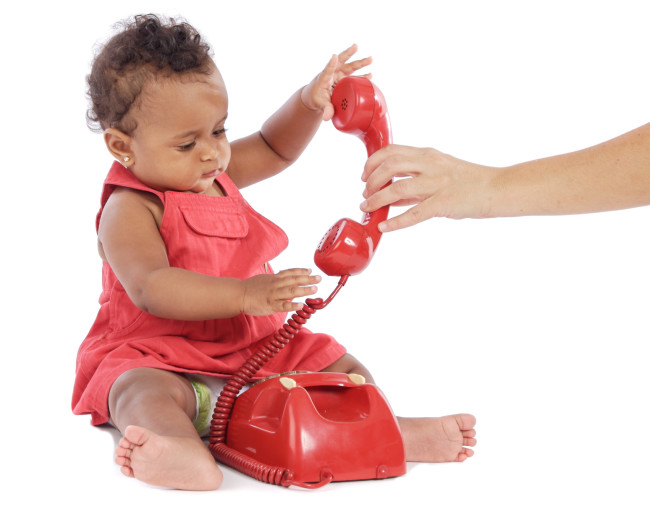It’s hard to believe that any baby will end up talking sensibly after hearing goofy high-pitched chitchat. But, baby talk is the best way for babies to learn their parents’ language. It gives guidance that helps infants move toward childish, then adult, language abilities.
Remember, we are referring to babies, not toddlers, pre-schoolers or older children who learn language skills quite differently from the way infants do.
Baby talk also aids infant social skills and interests. It presents infants with some great stimuli; they are especially responsive to high pitch noises, predictable and pronounced rhythm catches babies’ attention, and, eye contact and gaze movement with exaggerated facial expressions are of great interest to infants.
It’s easy to see that babies are more attentive to baby talk than “normal” adult-directed speech. And because they are paying attention, they are more likely to be stimulated and learn, thereby improving brain development.
What do babies learn from baby talk?
Infants learning from baby talk are not ready to learn words yet, they are learning the basic speech sounds of their parents. Because languages are all made up differently, and because humans can make a variety of sounds, babies have to learn which noises are part of speech, which are sneezes, hiccups, or a parent pretending to be a duck.
Babies learn phonemes, the basic unit of language’s phonology, by putting together “mouth sounds”. They unintentionally extract from sounds, information about their native language’s phonemes, and as they get older, they will use the same skills when they breakdown speech into the separate words.
Even when babies know their phonemes and are getting to know some words, after about 6 months of age, baby talk still gives them some advantages. Infant-directed speech uses short sentences and simple concepts, but it is much more predictable than adult-directed speech. And you needn’t worry that you will talk baby talk longer than you child needs it. As children show us their growing attentiveness to speech and understanding of language, we automatically shift our style to suite their abilities.
That’s the WHAT and WHY. For the HOW, contact [email protected].
About the Author: Dr. Lauren Stretch is the founder of Early Inspiration, an organisation which aims to enhance the development of young children in South Africa through practitioner training and home interventions. She is one of the youngest PhD graduates in the country, and has completed her studies in the effectiveness of pre-school teachers, particularly in underprivileged settings, at the University of South Africa (UniSA).
Latest posts by Contributor (see all)
- Practical advice for keeping your toddler safe around the pool - December 18, 2014
- Is your pool toddler-proof? - December 18, 2014
- Is it worth it? - December 18, 2014
-
No Comments" href="https://all4baby.co.za/pregnancy/planning-for-baby/2754/working-baby-expo-circuit/">

Working the baby expo circuit
-
No Comments" href="https://all4baby.co.za/babies-6-12-months/health-hygiene-illness/2736/baby-gone-off-solid-foods/">

Why has my baby gone off solid foods?
-
No Comments" href="https://all4baby.co.za/toddlers-1-2-years/learning-development-1-2-years/2721/teach-toddler-new-concepts/">

How to teach your toddler new concepts
-
1 Comment" href="https://all4baby.co.za/babies-6-12-months/2711/secondhand-car-seats-biggest-mistakes-parents-make/">

Secondhand car seats: The biggest mistakes parents make


 Saving...
Saving...